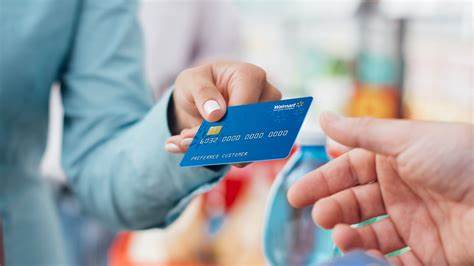If you are facing multiple high-interest debts and large monthly repayments, you might consider debt consolidation as a solution. Establishing credit may be a possible outcome of a consolidated debt, but there are many things to consider before you commit to a debt consolidation loan
When I jumped from a travel credit card to a cash back card this year, I didn't do it easily. I considered my expenses: I traveled every week. Unlike my previous job, I worked in San Francisco and spent more time with my wife and two daughters. Like most American families, we spend more on food and other household expenses than on travel. I realized that I would continue to use my travel card to buy everyday items, just like holding clothes that are no longer fit.
Make the switch
It's hard to get rid of your favorite credit card. First, our brains will tell us that whatever we have, the things we already have are more valuable than what we don't have. The current situation makes people feel comfortable. That's why we are not willing to sell losing stocks, or, in my case, stop using travel credit cards for daily purchases, even if I know that I no longer get the best deals.
But few people report that they really spend money on travel. According to the US Bureau of Labor Statistics, in 2014, only about 15% of US households reported an average quarterly expenditure on accommodation, and only about 10% of households reported spending on airline tickets.
In other words, some travel cards provide good value for people who don't travel very often. General travel cards have a uniform reward rate that can help you go on holiday every time, rather than being more difficult to get rewards.
However, the long-term value of travel cards is often not as good as non-tourists' cash withdrawal cards. The reasons are as follows:
Cash back: a better choice?
- Redemption options: If you don't travel a lot, your chances of redeeming points or miles will be reduced. In contrast, cash rebates provide greater flexibility.
- Travel reward categories: Some travel cards, including airline cards, hotel cards and some ordinary travel cards, provide bonus points for travel expenses. However, if you never spend your time on travel, you may be trapped by a 1% low rate of return on the card.
- Travel Allowance: Allowances such as free checked baggage, lounge access and companion passes can be rewarded when you travel, but these benefits also increase the annual fee for these cards. If you don't use these extra allowances often, they may not be worth the money. The cash feedback card offers more options for no annual fee.
- Free holidays: People who hold travel cards may always have a dream: spend money and get a free holiday. The only problem is that if you don't travel, it's hard to turn your dreams into reality.
A cash rebate card, or a card that is paid by a check or statement credit card, is generally more valuable than a travel credit card for the average American family.
Travel cards still make the most sense for regulars. According to the latest data from the agency, the average total travel expenditure in 2011 exceeded $4,000 in a small number of households reporting travel expenses. However, if you spend much less on travel, you will generally get better long-term value from a cash back card that matches your spending.



